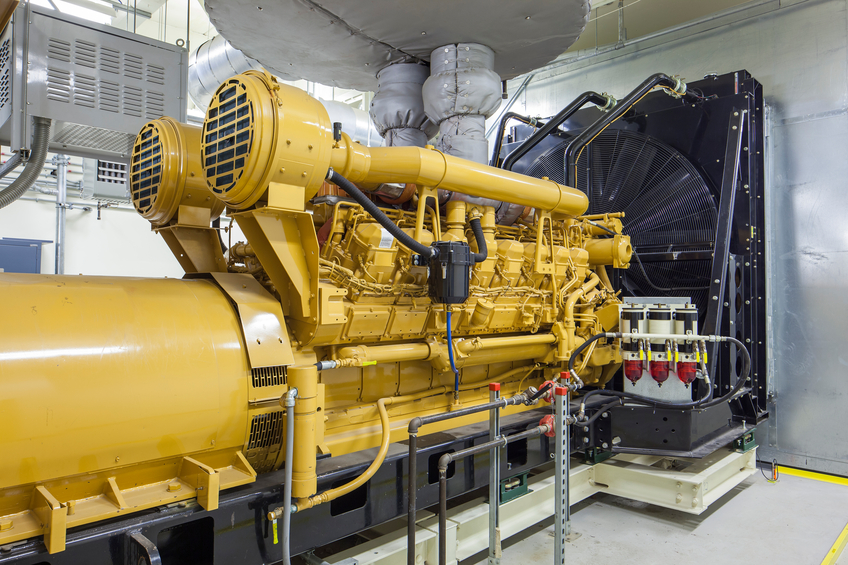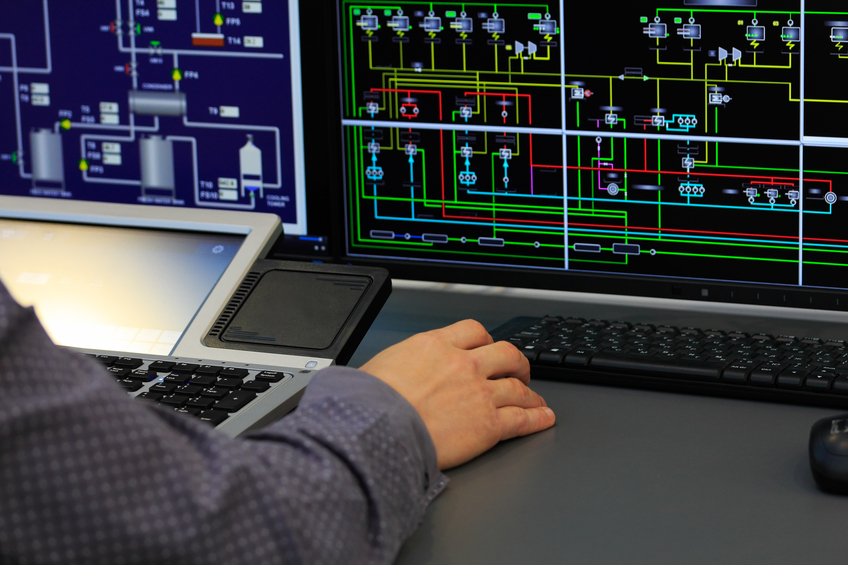Ohio Electrical and Ethics 30 PDH Discount Package 1
Courses in this Package
Basic Electrical Theory (E04-001)
Basic Direct Current (DC) Theory (E03-001)
Alternating Current (AC) Systems (E08-001)
DC Circuits, Batteries, Generators and Motors (E05-001)
Electrical Distribution Systems (E02-004)
Electrical Test Instruments and Measuring Devices (E02-003)
Motor and Drive System Basics (E02-021)
Overview of Basic Instruments (E02-025)
Engineering Ethics for Ohio Professional Engineers (OH2-003)

This online engineering PDH course introduces basic electrical concepts. It starts by explaining the concept of the electrostatic force and the first law of electrostatics. It defines the basic electrical terminology and its corresponding units of measure. It continues to describe the methods of producing electricity. It also describes the principle of magnetism and magnetic circuits. Finally it provides a list of basic electrical symbols used to read and interpret electrical system diagrams and schematics.
This 4 PDH online course is applicable to electrical and computer engineers, design and construction personnel, technical staff and facility operators who are interested in gaining a better understanding of the theory of electricity.
This PE continuing education course is intended to provide you with the following specific knowledge and skills:
- Understanding atoms and their forces
- Distinguishing electrical components conductors, insulators and resistors
- Understanding voltage and current
- Learning the units of electrical measurements
- Identifying the methods of producing voltage
- Understanding magnetism and magnetic circuits
In this professional engineering CEU course, you need to review Module 1, "Basic Electrical Theory" of the Department of Energy Publication DOE-HDBK-1011/2-92, "Electrical Science".
Upon successful completion of the quiz, print your Certificate of Completion instantly. (Note: if you are paying by check or money order, you will be able to print it after we receive your payment.) For your convenience, we will also email it to you. Please note that you can log in to your account at any time to access and print your Certificate of Completion.

This online engineering PDH course introduces the basic concepts of direct current (DC). It starts by describing the various types of DC sources. It explains the relevant DC circuit terminology. It demonstrates a series of basic DC circuit calculations by providing pertinent examples. It introduces conventional and electron flow and voltage polarity as well as defines Kirchhoff's Laws. Finally it discusses DC circuit analysis and faults.
This 3 PDH online course is applicable to electrical and computer engineers, design and construction personnel, technical staff and facility operators who are interested in gaining a better understanding of the theory of direct current.
This PE continuing education course is intended to provide you with the following specific knowledge and skills:
- Identifying DC sources
- Familiarizing with DC circuit terminology
- Performing DC circuit calculations
- Understanding voltage polarity and current direction
- Knowing Kirchhoff's laws
- Analyzing DC circuits and identifying circuit faults
In this professional engineering CEU course, you need to review Module 2, "Basic DC Theory" of the Department of Energy Publication DOE-HDBK-1011/2-92, "Electrical Science".
Upon successful completion of the quiz, print your Certificate of Completion instantly. (Note: if you are paying by check or money order, you will be able to print it after we receive your payment.) For your convenience, we will also email it to you. Please note that you can log in to your account at any time to access and print your Certificate of Completion.

This online engineering PDH course introduces the basic concepts of alternating current (AC) electrical circuits and discusses the associated terminology. It describes inductance and capacitance and their effects on AC circuits. It presents power calculations for single-phase and three-phase AC circuits and includes the power triangle concept.
Furthermore, it describes the operating characteristics of AC generators and includes terminology, methods of voltage production, and methods of paralleling AC generation sources. This course also explains the basic operation and application of voltage regulators. Finally, it explains the theory of operation of AC motors and discusses the various types of AC motors and their application.
This 8 PDH online course is applicable to electrical and computer engineers, design and construction personnel, technical staff and facility operators who are interested in gaining a better understanding of AC systems.
This PE continuing education course is intended to provide you with the following specific knowledge and skills:
- Understanding AC generation and analysis
- Learning inductance, capacitance, impedance and resonance
- Understanding the power triangle
- Knowing three-phase circuits
- Understanding AC generator components, theory and operation
- Identifying and learning the different components of a voltage regulator
- Understanding AC motors and different their types
- Understanding the transformers and their different types
In this professional engineering CEU course, you need to review Modules 7 to 13 of the Department of Energy Publication DOE-HDBK-1011/2-92, "Electrical Science" publication.
Upon successful completion of the quiz, print your Certificate of Completion instantly. (Note: if you are paying by check or money order, you will be able to print it after we receive your payment.) For your convenience, we will also email it to you. Please note that you can log in to your account at any time to access and print your Certificate of Completion.

This online engineering PDH course introduces the rules associated with the reactive components of inductance and capacitance and how they affect DC circuits. It also introduces batteries and describes the types of cells used, circuit arrangements, and associated hazards. This course further describes the types of DC generators and their application in terms of voltage production and load characteristics. Finally, it illustrates the types of DC motors and includes discussions of speed control, applications, and load characteristics.
This 5 PDH online course is applicable to electrical and computer engineers, design and construction personnel, technical staff and facility operators who are interested in gaining a better understanding of the basics of DC systems.
This PE continuing education course is intended to provide you with the following specific knowledge and skills:
- Understanding inductance and capacitance
- Learning battery terminology, battery theory, and battery operations
- Understanding the different types of batteries and their hazards
- Learning DC equipment terminology and construction
- Gaining knowledge of DC generator theory and construction
- Understanding DC motor theory and operation
- Learning the different types of DC motors
In this professional engineering CEU course, you need to review Modules 3 to 6 of the Department of Energy Publication DOE-HDBK-1011/2-92, "Electrical Science".
Upon successful completion of the quiz, print your Certificate of Completion instantly. (Note: if you are paying by check or money order, you will be able to print it after we receive your payment.) For your convenience, we will also email it to you. Please note that you can log in to your account at any time to access and print your Certificate of Completion.

This online engineering PDH course describes basic electrical distribution systems including system components and protection devices. It also presents the characteristics of system design, such as circuit breakers, motor controllers, wiring schemes and grounding, to ensure personnel and equipment safety.
This 2 PDH online course is applicable to electrical and computer engineers, design and construction personnel, technical staff and facility operators who are interested in gaining a better understanding of electrical distribution systems.
This PE continuing education course is intended to provide you with the following specific knowledge and skills:
- Understanding of system components and protection devices
- Learning about circuit breakers and motor controllers
- Understanding wiring schemes and grounding
In this professional engineering CEU course, you need to review Module 15, "Electrical Distribution Systems" of the Department of Energy Publication DOE-HDBK-1011/2-92, "Electrical Science".
Upon successful completion of the quiz, print your Certificate of Completion instantly. (Note: if you are paying by check or money order, you will be able to print it after we receive your payment.) For your convenience, we will also email it to you. Please note that you can log in to your account at any time to access and print your Certificate of Completion.

This online engineering PDH course describes electrical measuring devices such as voltmeters, ammeters, ohmmeters and wattmeters. It also describes test equipment such as multimeters and meggers. It discusses the electrical parameters measured and the principles of operation of common instruments.
This 2 PDH online course is applicable to electrical and computer engineers, design and construction personnel, technical staff and facility operators who are interested in gaining a better understanding of electrical test instruments and measuring devices.
This PE continuing education course is intended to provide you with the following specific knowledge and skills:
- Understanding meter movements
- Learning about the various electrical measuring devices (voltmeters, ammeters, ohmmeters and wattmeters)
- Learning about the various electrical test equipment (multimeters and meggers)
In this professional engineering CEU course, you need to review Module 14, "Test Instruments and Measuring Devices" of the Department of Energy Publication DOE-HDBK-1011/2-92, "Electrical Science".
Upon successful completion of the quiz, print your Certificate of Completion instantly. (Note: if you are paying by check or money order, you will be able to print it after we receive your payment.) For your convenience, we will also email it to you. Please note that you can log in to your account at any time to access and print your Certificate of Completion.

This online engineering PDH course presents the basics of motor and drive systems and briefly describes important terms, relationships, and system design considerations. It also describes key factors involved in motor and drive selection and system design, and provides an overview of the different types of motors and drives and their applications.
This 2 PDH online course is applicable to electrical and mechanical engineers, designers, contractors, building professionals and manufacturers who are involved with motor and drive systems.
This PE continuing education course is intended to provide you with the following specific knowledge and skills:
- Detecting the indications of a poor system design
- Learning about the different types of electric motors
- Understanding motor operating characteristics
- Selecting motors and drives for their corresponding applications
- Understanding load duty cycles
- Familiarizing with common motor selection problems
Upon successful completion of the quiz, print your Certificate of Completion instantly. (Note: if you are paying by check or money order, you will be able to print it after we receive your payment.) For your convenience, we will also email it to you. Please note that you can log in to your account at any time to access and print your Certificate of Completion.

This online engineering PDH course provides an overview of various types of indicating instruments used in engineering plants and other day-to-day applications.
Engineering measuring instruments are typically classified into the following groups: pressure gauges, temperature detectors, temperature measuring devices, electrical indicating instruments, liquid-level indicators, revolution counters and indicators, salinity indicators, and torque wrenches.
These instruments are used to determine how the engineering plant is operating. Machinery damage, personnel injury, and expensive and time-consuming repairs can be avoided by taking proper operator actions, which can only take place when the instruments (temperature indicators, pressure gauges, and so forth) are properly calibrated and properly interpreted by the operating personnel.
This 2 PDH online course is applicable to electrical and mechanical engineers as well as others interested in learning more about the basic instruments used in various engineering applications.
This PE continuing education course is intended to provide you with the following specific knowledge and skills:
- Familiarizing with the basics of engineering measuring instruments
- Understanding the use of sensitive measuring tools
- Learning how to read and interpret gauges, indicators, and thermometers
- Gaining a general overview of the purpose of engine test equipment
Upon successful completion of the quiz, print your Certificate of Completion instantly. (Note: if you are paying by check or money order, you will be able to print it after we receive your payment.) For your convenience, we will also email it to you. Please note that you can log in to your account at any time to access and print your Certificate of Completion.

This online engineering PDH course presents the laws and rules of ethics and professional responsibility governing the practice of engineering in the State of Ohio. Excerpts from Chapter 4733 of the Ohio Revised Code and Chapter 4733 of the Ohio Administrative Code, which relate to the rules of profession conduct, continuing education requirements, proper use of seal and other pertinent regulatory provisions are presented in this course.
Engineering ethics is (1) the study of moral issues and decisions confronting individuals and organizations involved in engineering and (2) the study of related questions about moral conduct, character, ideals and relationships of peoples and organizations involved in technological development (Martin and Schinzinger, Ethics in Engineering).
Since engineers are faced with frequent moral and ethical dilemmas while practicing their engineering profession, this course will provide you with moral and ethical guidance in your decision-making process. Most importantly, it will provide you with insight on how to conduct, respect and protect your engineering practice with the utmost professionalism.
This 2 PDH online course is applicable to Professional Engineers licensed in the State of Ohio and who are required to demonstrate continuing professional competency in engineering ethics as a condition of their license renewal. For each renewal period, every licensee must complete thirty (30) professional development hours, two (2) of which must be relative to the rules of professional responsibility, conduct and ethics. The remaining hours shall relate to the licensee's area of practice.
This PE continuing education course is intended to provide you with the following specific knowledge and skills:
- Understanding the Ohio laws and rules regulating the practice of engineering in the State of Ohio and their application to Professional Engineers
- Understanding the rules of professional responsibility, professional conduct and engineering ethics
- Familiarizing with the Ohio disciplinary process and the various violations and corresponding penalties imposed by the board
Upon successful completion of the quiz, print your Certificate of Completion instantly. (Note: if you are paying by check or money order, you will be able to print it after we receive your payment.) For your convenience, we will also email it to you. Please note that you can log in to your account at any time to access and print your Certificate of Completion.